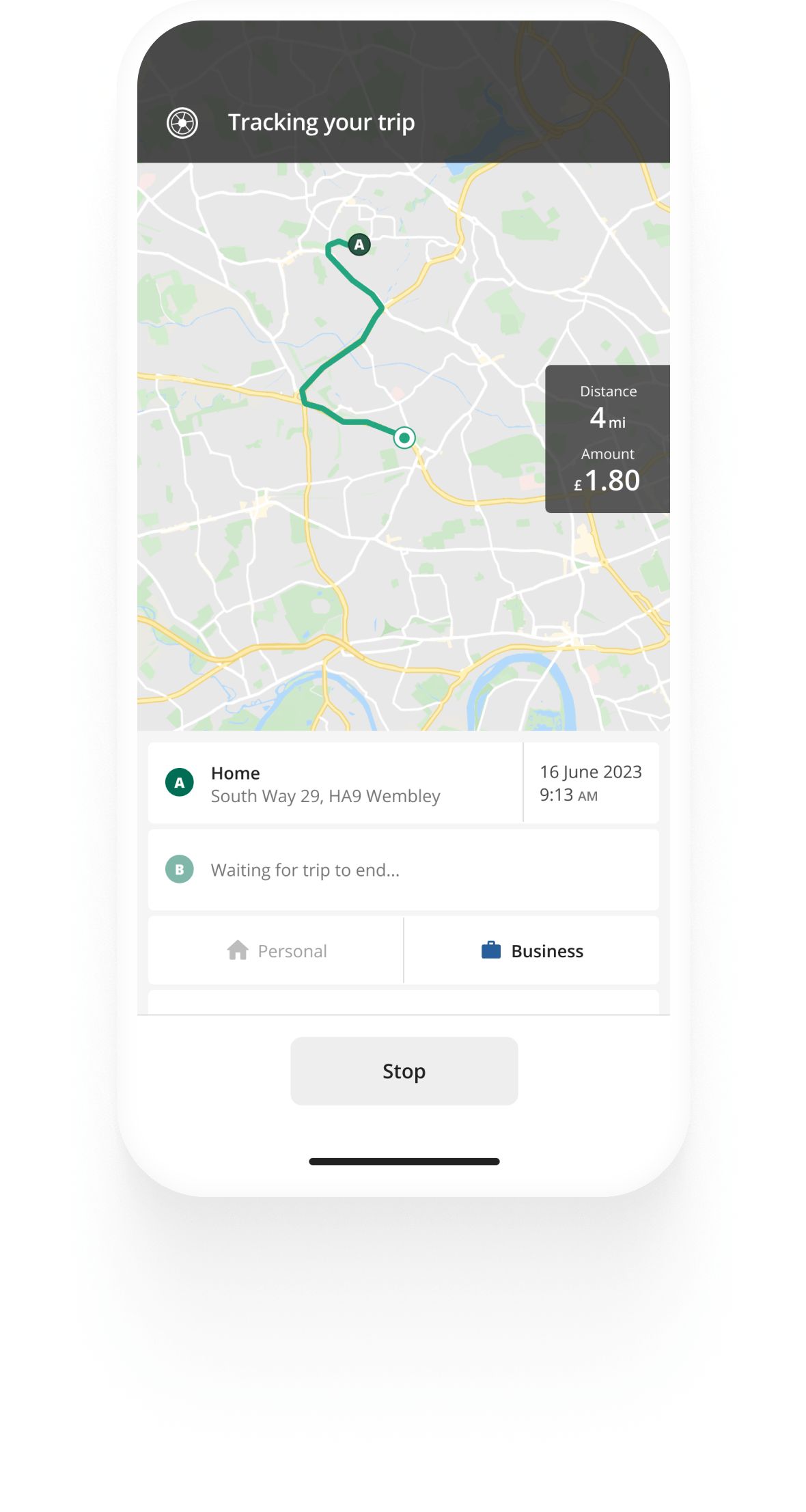Track mileage automatically
Get started.svg)
What expenses can I claim as self-employed?
Being self-employed can be great. You get to make all the decisions, you don't have to wear a tie and you only work as hard as you want to.
If you're self-employed, however, HMRC will expect tax payments on your profits. So how do the rules surrounding these expenses work? In this article we'll explain the basics about claiming business expenses for self-employed people in the UK.
Self-employed allowable expenses
When you're claiming expenses on your self-assessment tax return, it's important to keep a record of what you spent. It's also essential that you don't claim for anything that isn't necessary for your business.
If a particular expense isn't listed below as something that can be claimed by self-employed individuals, it doesn't mean that it can't be deducted from your profits. You just need to check with HMRC before making any assumptions about what counts as a legitimate business cost and what doesn't.
Allowable expenses are costs that are necessary for running your business and can be deducted from your taxable profits.
- Office rent
- Utility bills (e.g., gas, electricity, water, and internet)
- Business-related travel expenses (e.g., fuel costs, train or bus tickets, hotel costs). When claiming for business mileage it is important that you keep an accurate record of your driving. We recommend using an automated mileage tracker, like the one we have developed here at Driversnote.
- Business-related equipment (e.g., computers, software, tools, machinery, and office furniture)
- Office supplies (e.g., paper, pens, printer ink, and postage stamps)
- Advertising and marketing costs (e.g., website development, business cards, and online advertising)
- Professional fees and subscriptions (e.g., memberships to professional bodies, trade associations, and subscriptions to industry publications)
- Insurance premiums (e.g., public liability, professional indemnity, and employer's liability)
- Legal and financial advice (e.g., fees for solicitors, accountants, and financial advisors)
- Bad debts (e.g., unpaid invoices that you've written off as irrecoverable)
- Bank charges (e.g., fees for business bank accounts or credit cards)
Remember: it's essential to keep accurate records of all your expenses, including receipts and invoices, to support your claims and ensure that you can prove them if necessary.


Mileage tracking made easy
Trusted by millions of drivers
Automate your mileage log Automate your mileage log

Automatic mileage tracking and HMRC-compliant reporting.
Get started for free Get started for freeOther things you might want to know about HMRC tax rules for the self-employed
When talking about self-employed expenses, it’s worth emphasising that you have to pay your own National Insurance contributions and income tax. For employees this is normally done by their employers through PAYE (Pay As You Earn), but sole-traders do not have that luxury.
Below you will find 5 things, that you should know when you’re doing your taxes as a self-employed individual:
- Personal expenses are not allowable: You can only claim expenses that are wholly and exclusively for the purpose of your business. Any expenses that have a personal element to them, such as the cost of clothing or food for yourself, are not allowable.
- Use simplified expenses if you're a sole trader: If you're a sole trader, you may be able to use simplified expenses instead of claiming actual expenses for some categories. Simplified expenses are a way of claiming a flat rate for certain expenses, such as home office use or vehicle costs. However, you need to meet certain criteria to use simplified expenses, so it's essential to check the rules before doing so.
- Know the deadlines for claiming expenses: You need to claim expenses within the tax year that they relate to. For example, expenses incurred between April 6, 2025, and April 5, 2026, need to be claimed on your 2025-26 tax return.
- Keep accurate records: Keeping accurate records of your expenses is crucial for supporting your claims and ensuring that you can prove them if necessary. You should keep all receipts and invoices for at least six years, as HMRC may ask to see them during an investigation.
- Seek advice if you're unsure: If you're unsure about whether an expense is allowable or how to claim it, it's best to seek advice from a qualified accountant or tax professional. They can help you understand the rules and ensure that you're claiming the right expenses.
In conclusion, knowing the allowable self-employed expenses as a person in the UK is essential for managing your finances, reducing your tax bill, and staying compliant with HMRC.
FAQ

Tired of logging mileage by hand?
Effortless. HMRC-compliant. Liberating.
Top posts
- HMRC travel expenses guidelines
- HMRC advisory fuel rates 2025
- Automate mileage tracking in healthcare with Driversnote Teams UK
Related posts
Free mileage log book template
Latest update: 7 May 2025 - 2 min read
Whether you're an employee or a business owner, it's crucial to keep good mileage records in a mileage log book.
HMRC Mileage Guide
Latest update: 2 April 2025 - 5 min read
Welcome to our guide on mileage claims and reimbursement in the UK. This guide will walk you through the rules that apply to your situation.
HMRC travel expenses guidelines
Latest update: 16 January 2026 - 2 min read
This guide for employers, employees, and sole-traders offers an overview of what you need to know if you're seeking tax relief or reimbursement for travel expenses.
.svg)

